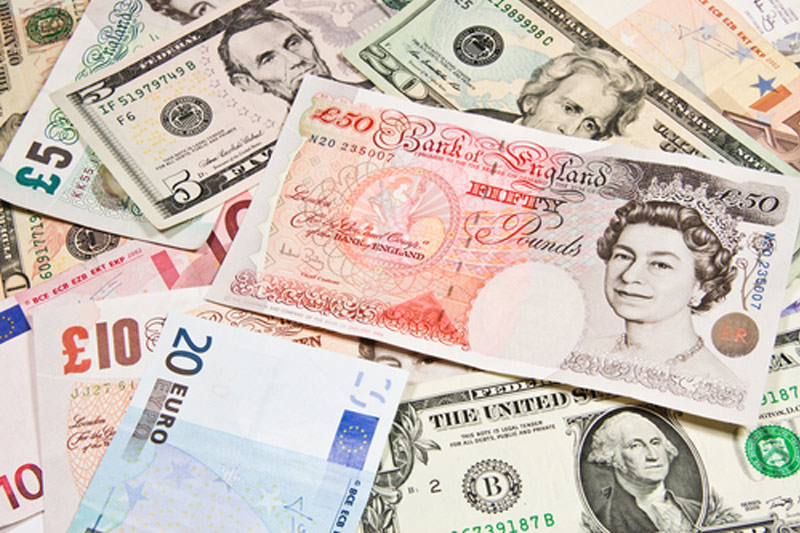Dollar slips, while yen soars on intervention talk, sterling gains after UK CPI
The U.S. dollar slipped to multi-month lows Wednesday, while the Japanese yen strengthened sharply and sterling climbed to a one-year high after hotter-than-expected UK inflation data.
At 05:40 ET (09:40 GMT), the Dollar Index, which tracks the greenback against a basket of six other currencies, traded 0.5% lower to 103.402, falling to the lowest levels since mid-March. Dollar on back foot
The dollar traded on the back foot Wednesday amid confidence that the U.S. Federal Reserve will start cutting interest rates to boost a slowing economy in September.
U.S. retail sales failed to grow in June, and even though this pointed to a degree of consumer resilience it failed to significantly alter market views for a rate cut at the next Fed meeting, which is now fully priced in.
“Despite the positive data, real retail sales are still around 4 percentage points below their 2021 peak,” said analysts at ING, in a note. “Slower consumer spending growth, moderating inflation, and rising unemployment rates may impact the sector going forward, and we still expect this to feed into a narrative of lower Fed rates.”
On the economic front, the Fed’s Beige Book will be studied carefully for signs of economic weakness, as will housing starts and building permits data for June. Sterling benefits from UK inflation data
GBP/USD traded 0.5% to 1.3038, with sterling climbing to its highest level since mid-July of last year, after data on Wednesday showed U.K. inflation rose slightly more than expected.
The headline consumer price index held at 2% on an annual basis in June against forecasts for a 1.9% increase, while the closely watched services inflation came in at 5.7%.
The Bank of England next meets at the start of August, and this data release resulted in traders paring back bets of a rate cut at that point, helping the pound.
EUR/USD rose 0.4% to 1.0938, with the euro benefiting from the dollar weakness, ahead of Thursday’s policy-setting European Central Bank meeting later.
The ECB is widely expected to maintain its current rates after they eased in June, but it will cut its deposit rate twice more this year, in September and December, according to a strong majority of economists polled by Reuters, who said the balance of risks was tilted towards just one additional cut by year-end. Yen jumps amid intervention speculation
In Asia, USD/JPY slumped 1.3% to 156.37, with the yen recovering sharply from nearly 162 in recent sessions, putting traders on alert for signs of another intervention from Japanese authorities to prop up the currency.
Bank of Japan data released on Tuesday suggested Y2.14 trillion may have been spent last Friday. Combined with the estimated amount spent on Thursday, Japan is suspected to have bought nearly 6 trillion yen via intervention last week.
USD/CNY traded 0.2% lower to 7.2558, with the pair dropping back from eight-month highs amid concerns over just what a potential Trump presidency could entail for U.S.-China relations.
Source: Investing.com
